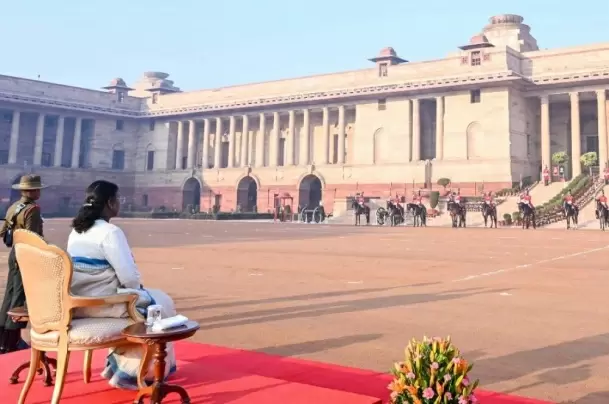Landmark Verdict: SC Brings President Under Judicial Review, Sets Three-Month Timeframe For Assent To Bills
12-April-2025

While resolving a vexed constitutional situation in Tamil Nadu, the Supreme Court (SC) is believed to have set a three-month deadline for Presidential and gubernatorial assent to bills passed by the legislature for the second time – a decision sparking an outcry over possible ‘judicial overreach’ by seeking to bring Presidential actions under judicial review.
A Bench of Justices J.B. Pardiwala and R. Mahadevan set aside Tamil Nadu Governor R.N. Ravi’s decision to withhold assent to 10 pending bills and, in the process, ruled that the President should also not take more than three months in arriving at a decision on bills referred by governors.
The Bench’s verdict, uploaded on its website on Friday evening, seeks to reinterpret the constitutional scheme of things and casts a shadow on the federal relations between the Centre and the states.
It said that the President’s functions are amenable to judicial review under Article 201 with the heading “Bills reserved for consideration.”
Article 201 states: When a Bill is reserved by a Governor for the consideration of the President, the President shall declare either that he assents to the Bill or that he withholds assent therefrom.
The Article goes on to state: Provided that, where the Bill is not a Money Bill, the President may direct the Governor to return the Bill to the House or, as the case may be, the Houses of the Legislature of the State together with such a message as is mentioned in the first proviso to Article 200; and, when a Bill is so returned, the House or Houses shall reconsider it accordingly within a period of six months from the date of receipt of such message and, if it is again passed by the House or Houses with or without amendment, it shall be presented again to the President for his consideration.
While deciding the Tamil Nadu deadlock in favour of the DMK-led state government, Justices Pardiwala and Mahadevan used the court’s inherent powers under Article 142 of the Constitution to declare the 10 withheld Bills as deemed to have been assented on the date when they were presented to the Governor after being reconsidered by the State legislature on November 18, 2023.
The court said that the Governor kept the 10 bills pending with him for unduly long periods in violation of the principles laid down by the Court in the Punjab Governor's case in November 2023.
He seemed to have been weighed by extraneous considerations in doing so, the Bench opined.
The Supreme Court, in its judgment, held that it is not open for the Governor to reserve a Bill for the consideration of the President once it is presented before him in the second round after having been returned to the House previously and then repassed by the legislature.
Constitutional experts and former law minister Kapil Sibal hailed the verdict.
Sibal said the delay in assent by governors over Bills passed by state legislators has long been used as a tool of harassment by the Central government, as the governor is an appointee of the federal government.
“The Supreme Court has ended the scope for unexplained delay and set a three-month deadline for governors to decide,” he said, adding that the Attorney General had opposed the decision over the setting of a deadline, but the apex court dismissed the government’s contrary stand.
Sibal called it a historic verdict and a boon for the federal structure of the country.- IANS
Chennai Police Move To Ban Dating App Grindr Over Links To Drug Peddling Network
Union Minister Jitan Ram Manjhi’s Granddaughter Shot Dead by Husband in Bihar
Prez Trump Warns Reprieve For Pharmaceuticals, Major Indian Export, To End ‘Shortly’
Dera Chief Ram Rahim Gets 13th Furlough Amid Foundation Day Celebrations
Supreme Court Rules Tamil Nadu Governor's Action on Bills as Illegal








